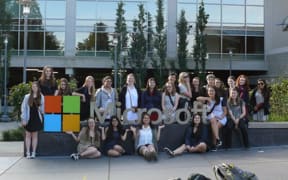IT needs to be given the same status as maths and science in schools, a tech industry leader says, but the government argues the subject cannot be put into just one area.

Orion Health chief executive Ian McCrae told Morning Report he wants to see IT taught as an academic subject. Photo: 123RF
Orion Health chief executive Ian McCrae told Morning Report digital technology was taught "very badly" in the NCEA system in New Zealand.
Together with the founder of Mind Lab, Frances Valintine, and the chief executive of Animation Research, Ian Taylor, Mr McCrae has written an open letter to the Minister of Education urging higher priority for the teaching of digital technology.
Changes announced last week that formally integrated digital technology into the curriculum did not go far enough, the group said.
The letter said smart students were being discouraged from taking IT because it was taught as a vocational subject, similar to metalwork, woodwork, sewing and cookery.
"Why are we teaching our students in subject areas where there are far fewer jobs that are paying way less?
"We just need to get our curriculum sorted, get it to be an academic subject, get it funded, and we need to do it now."
New Zealand is having to employ skilled workers from overseas because homegrown IT students were falling behind, he said.
There needed to be investment in teacher training, and the private IT sector would be willing to - and in some cases already was - helping resource schools with time, material, and tools, Mr McCrae said.
However, the government said technology could not be boxed into one part of the curriculum.
Education Minister Hekia Parata said the changes announced last week would allow children to lead on to specialist training for a digital career.
"The change we're making means a child will start learning about digital technologies from when they start school and can choose to continue with it all the way through to Year 13," she said.
"The fact that digital technologies are so ubiquitous means they can't be boxed into one learning area of the curriculum, independent from those other areas of technology which are also part of the digital transformation," Ms Parata said.
"Our young people need to be prepared to use digital technologies in all industries from automotive engineering to biotechnology."



